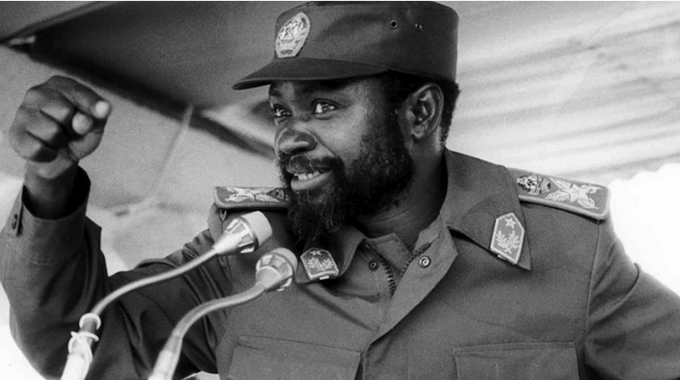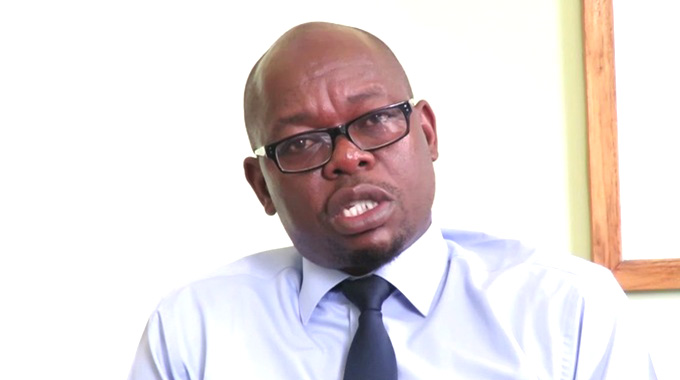Editorial Comment: Reflections on Moza’s sacrifices to region

Today, Mozambique marks the 45th anniversary of its independence from Portuguese colonial rule.
It was a crucially motivating development for others, in the region, still to gain their independence.
The victory of the people under Frelimo fired up the imagination of Zimbabweans and South Africans in their quest for freedom, independence and democracy.
What is significant to recall is that the Portuguese were brutal in their repression against those fighting for their independence.
That the Mozambicans could extract their freedom from such a cruel regime inspired nationalists in the then Southern Rhodesia and apartheid South Africa to believe that even they too could win the war against colonial rulers.
Mozambique not only inspired others; it went on to lend support to liberation movements in the region at great cost to its people and its economy.
It continues to suffer, even as we write, in this case from attacks spearheaded by what is believed to be an Islamist insurgency, particularly in the Cabo Delgado Province, in the north of the country, bordering Tanzania.
In fact, while the struggle for independence of Mozambique was waged for a decade, in 1977, two years after gaining independence the country faced attacks from the Mozambican National Resistance (Renamo), ostensibly aimed at delaying the independence of both Zimbabwe and South Africa.
In the process, the post-independence war in Mozambique resulted in an estimated million lives being lost, 1.5 million refugees fleeing into neighbouring Zimbabwe and Malawi and internally displacing about 4.5 million other Mozambicans.
These attacks lasted for 16 years, ending in 1992.
In fact, of the 45 years that the country has been independent, more than a third of those have been spent fighting to protect its hard-won independence and sovereignty.
The war damage to the people, villages, towns, food production, infrastructure and the economy was staggering in its unrelenting brutality.
The killing of President Samora Machel on October 19, 1986, attests to the vicious war — economic, military, psychological and social — waged against that country and the price paid because of its commitment to freedom and independence of countries in the region.
Now it faces another insurgency from what are believed to be Islamist insurgents. It is for this reason that Mozambique has brought the matter before SADC.
It would be difficult for the region to enjoy peace when one of its members is under attack. The fate of the countries in the region is intertwined.
Insecurity in Mozambique poses a threat to Malawi, Tanzania, South Africa, Zambia and Zimbabwe in particular.
Malawi, Zambia and Zimbabwe have major routes to the sea through Mozambique and instability in that country would have a significantly negative impact on its neighbours.
As a result of the increased insecurity in Mozambique and by extension the threat to this country in August 1985, Zimbabwe sent troops to assist the Mozambican forces defend the country from Renamo attacks.
That joint operation sowed the seeds of the cessation of the conflict, which followed in 1992.
But that peace has been tenuous because it has been dogged by low-level intensity conflict waged by Renamo as part of its strategy to extract concessions from Maputo.
Concern about the current attacks arises from the fact that it is disrupting peace and derailing economic development at a time gas has been discovered in that country.
Large natural gas fields were discovered 40km off the coast of Cabo Delgado Province.
The discoveries are thought to be significant because of the size of the reserves and the proximity of the country to markets in Asia.
Exploitation of the natural gas fields has long-term benefits for Mozambique in that they will drive more investment to the region, in the process generating revenue for the governments, while offering vast opportunities for the people of Mozambique and its neighbours.
The insurgency poses a direct threat to this development in much the same way that conflict in countries such as the Democratic Republic of Congo (DRC) has impacted the economic development of that country despite its vast natural and mineral resources.
In 2008, SADC established a regional Standby Brigade with a mandate to participate in humanitarian assistance to alleviate the suffering of civilian population in conflict areas or any other functions as may be authorised by the SADC Summit.
What is happening in Cabo Delgado because of the war being waged by the insurgents is a humanitarian crisis.
The Standby Brigade also has a mandate to participate in preventing conflict from escalating, and peace-building, including post-conflict disarmament and demobilisation.
The brigade also participates in missions through which it intervenes, at the request of member states in order to restore peace and security.
Mozambique deserves peace and the region needs to render assistance that will help in resolving the conflict in that country because instability in Mozambique disrupts peace in the region. In particular, the conflict has an immediate adverse impact on four of the SADC member states — Malawi, South Africa, Tanzania and Zimbabwe.









Comments